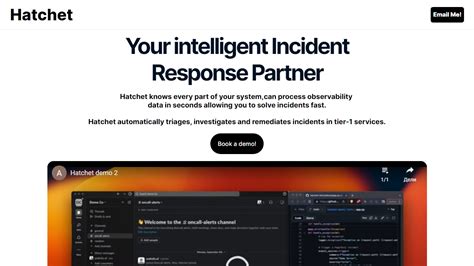In the ever-evolving domain of software development tools, Hatchet emerges from the latest YC batch, bringing an innovative approach to task queues. Utilizing Postgres as its backbone, Hatchet delivers a cloud-versioned, open-source task queue aimed at the inadequacies found in popular frameworks like Celery. As a modern substitute, Hatchet simplifies the development experience by consolidating tools and ensures reliable task execution essential to modern scalable applications.
One of Hatchet’s defining features is its lean dependency on PostgreSQL. The developers behind Hatchet recognized the redundancies and potential pitfalls of traditional task queues relying on multiple brokers. For instance, **Celery** heavily depends on both Python and RabbitMQ for its operation, leading to potential performance bottlenecks and increased complexity in configuration and management. Hatchet, on the other hand, emphasizes a streamlined integration directly with PostgreSQL, making it apt for developers already familiar and heavily invested in Postgres stacks.
The journey of Hatchet’s development arose from significant frustration with Celery’s performance on modern Python setups. By addressing these pain points, Hatchet appears as a robust alternative with enhanced observability and workflow management features. Emphasizing durable executions, Hatchet’s support for DAGs (Direct Acyclic Graphs) and child workflows provides a clearer and more maintainable path for managing complex task dependencies. In this vein, one of the pivotal innovations is its **support for HTTP-based triggers** using webhooks, which simplifies the orchestration of tasks in serverless environments or platforms like Vercel.
However, the evolution of Hatchet hasn’t been devoid of challenges and feedback from its initial users. Initially relying substantially on RabbitMQ for pub/sub between engine components, the team has made significant progress with hatchet-lite, enabling a more cohesive local development environment by bundling RabbitMQ into a Docker image. Although RabbitMQ is still a dependency, there’s ongoing work towards a PostgreSQL-exclusive solution to cater to developers emphasizing simplicity and reduced infrastructure overhead.
The reception from the developer community showcases Hatchet’s potential. While some critiques spotlight the reliance on RabbitMQ which seemingly contradicts a purely PostgreSQL-focused tool, others commend the innovative integrations and features that Hatchet has introduced. Noteworthy is the focus on providing **a seamless developer experience** with observability into running tasks, detailed metrics, and structured logging. Users have highlighted the appeal of transitioning from cumbersome setups like Celery to the more integrated and simplified Hatchet ecosystem.
Additionally, Hatchet’s open-source nature under the MIT license has fostered a community-driven development model. This approach not only invites feedback and contributions but also ensures that the tool evolves in alignment with the broader needs of its user base. As Hatchet evolves, it promises to bridge the gap between simple task management and complex workflow orchestration efficiently, reducing friction for developers and enhancing productivity in maintaining sustainable task queues.
In summary, while the task queue landscape remains competitive with various tools vying for dominance, Hatchet’s approach rooted in PostgreSQL presents a compelling case for developers seeking streamlined, reliable, and scalable task management solutions. Whether it’s avoiding the pitfalls of cumbersome dependencies or enjoying the enhanced observability into task queues, Hatchet stands out as a robust solution driving the future of task orchestration.


Leave a Reply